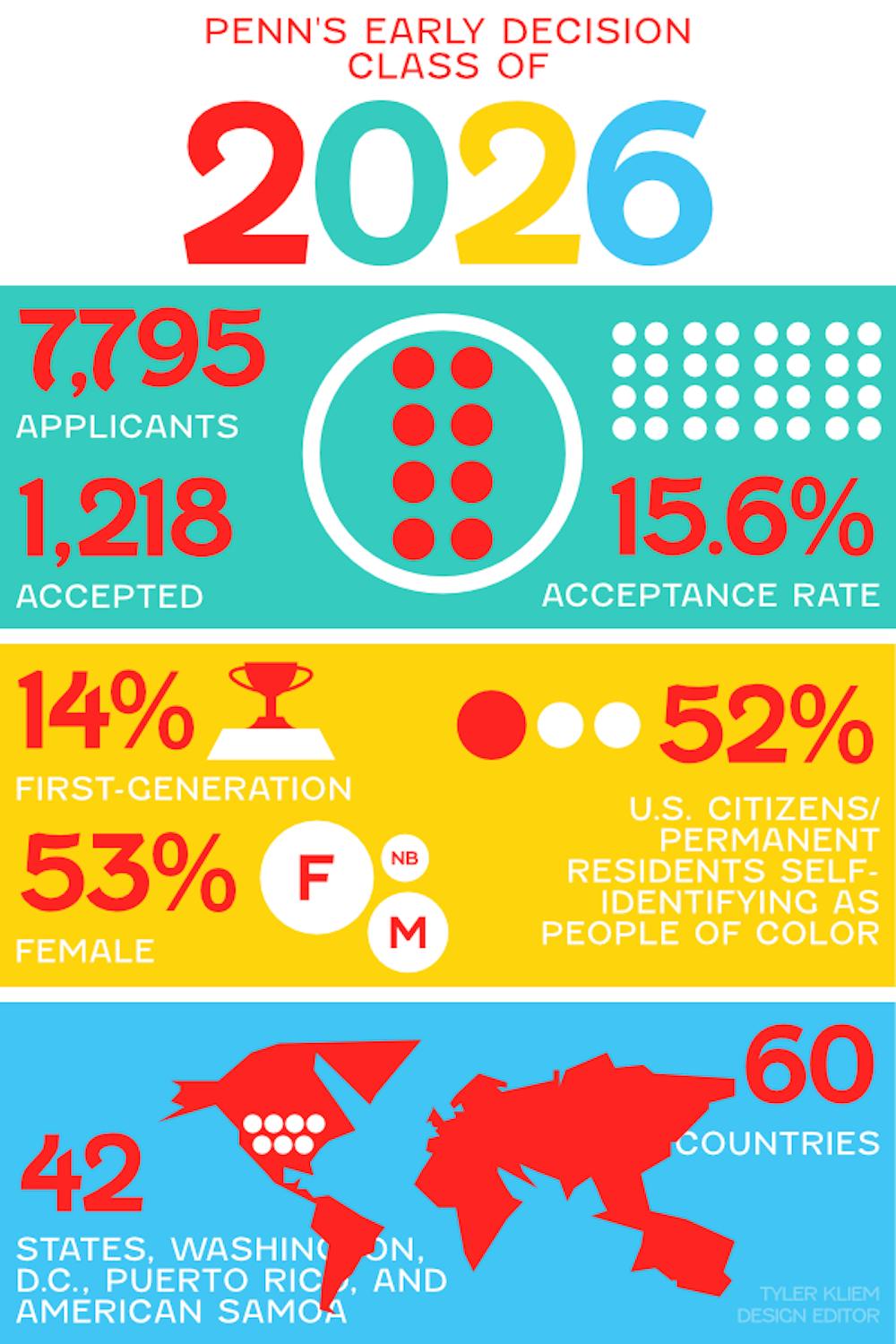
Penn accepted 15.63% of early decision applicants to the Class of 2026, up slightly from last year's record-low 15%.
This year, 7,795 students applied through the University's Early Decision Program, a 2% decrease from last year's 7,962 applicants. Penn offered admission to 1,218 students, who will comprise about half of the Class of 2026.
Penn released its early admissions decisions on Dec. 16 at 7 p.m.

More than half of admitted United States citizens and permanent residents identify as students of color. The number increased to 52% compared to 50% last year. Fifty-three percent of admitted students are female, down slightly from 54% last year.
Twelve percent of students are international, hailing from 60 different countries, compared to last year's 56 countries. The number of states with admitted students dropped to 42 this year from last year's 43. Students from Washington, D.C., Puerto Rico, and American Samoa were also admitted.
Of students admitted to the Class of 2026, 14% percent are first-generation college students, a 2% increase from last year. Penn Admissions did not release the percentage of admitted students who were legacies.
Last year, Penn Admissions made a number of notable reforms to the application process in light of the COVID-19 pandemic, such as making SAT and ACT scores optional. Penn Admissions continued the test-optional policy for the 2021-2022 admissions cycle.
Last year, 24% of those admitted through Early Decision did not include test scores. Penn Admissions did not release the number of students who did not include test scores for the Class of 2026. Of those that did, the middle 50% testing ranges were 1500-1560 on the SAT and 34-35 on the ACT.
Building upon last year's efforts to better suit students' non-traditional high school experiences amid the pandemic, this was the first application cycle where applicants had the option to submit a non-teacher recommendation. Penn previously required students to submit two teacher letters of recommendation. Now, the other letter of recommendation can come from anyone who can comment on the student's character.
This was also the first early decision application cycle led by new Dean of Admissions Whitney Soule. Soule began her new post at Penn on July 1, replacing former Dean of Admissions Eric Furda after a 12-year tenure leading the office. She previously worked at Bowdoin College for 13 years, where she had served as its Senior Vice President and Dean of Admissions and Student Aid.
“We can’t wait for these inquisitive, motivated and caring students to join our campus community and to meet each other. Our admitted students demonstrated many of the values central to the Penn community — intellectual curiosity, collaboration, adaptability, and care for others,” Soule wrote.
The Daily Pennsylvanian is an independent, student-run newspaper. Please consider making a donation to support the coverage that shapes the University. Your generosity ensures a future of strong journalism at Penn.
Donate







